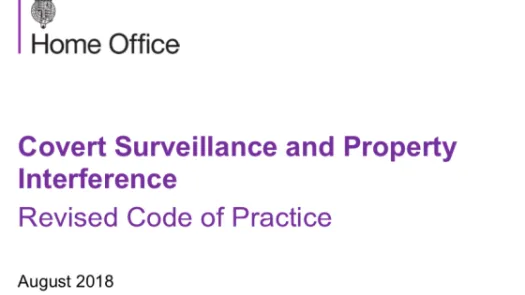@ Social Media: Protect Your Users From Border Surveillance!

Privacy International has today sent letters to leading social media platforms to ask what they're doing to protect their users' from dangerous surveillance by government immigration authorities.
The letter comes following the implementation of plans by US authorities to require nearly all visa applicants to hand over identifiers of all social media accounts they have used in the previous five years, or face “serious immigration consequences”.
The move not only represents a gross intrusion into individual’s right to privacy and an infringement on people's freedom to express themselves, but risks normalising and encouraging similar policies around the world.
While Privacy International and other campaigners have been warning about the steps since they were announced, for example within our submission to the formal consultation by the US government, we need the help of the US-based global tech giants who make billions from their users while wielding considerable power, and who similarly have a lot to lose from this move.
We have asked them to outline what steps they will take to use this power to protect their users worldwide.
The letter, below, has been sent to Facebook, Google, Twitter, Instagram, Pinterest, LinedIn, Reddit, & Tumblr.
We will update this page with any responses.
@ Social Media
We are writing to urge you to join us in supporting the rights of your users.
As you are aware, social media offers the world valuable resources for connecting, learning, and awareness raising. It allows people across the world to share their experiences, organise for positive change, and express themselves.
But all of this is under threat. Countries around the world spy on your users’ social media activities at border points and as part of entry requirements. In 2017, it was reported that Russia would be requiring certain visitors to disclose social media account details, while new rules in the United States will mean nearly all visa applicants will be required to have their social media histories vetted by the US government.
This massive expansion of social media surveillance is not only a violation of the rights of millions of people around the world who visit countries like Russia or the United States, it will normalise such surveillance of your platforms globally and turns them into digital bodies of evidence to be used to assess your users’ eligibility.
We are writing to ask for your commitment to protect them against such excessive and unlawful surveillance around the world.
The latest case: US Social Media Surveillance
In addition to mass surveillance of foreigners’ internet activity by intelligence agencies, the US government has for several years also monitored the social media use of some potential visitors and immigrants to the US. Such surveillance has recently been expanded as part of President Trump’s discriminatory “extreme vetting” practices, for example to allow the Department of Homeland Security (DHS) to store the social media details of individuals travelling to the US.
However, the most recent expansion – introduced days ago – is the largest yet, affecting an estimated 14 million people each year. As the Department of State has announced, almost all visa applicants to the United States are now required to submit identifiers of all social media accounts they have used in the previous five years. Anybody who failed to do so, a Department of State official noted, would face “serious immigration consequences”7.
As you are aware, social media is particularly revealing and sensitive to individuals, making any collection or retention highly invasive. Currently, there is no justification by the Department of State that this is effective or necessary and proportionate, and as such is an unlawful invasion into privacy. The effect would be unjustified intrusion into the private lives of those affected, undermining their freedom of speech, and affecting everyone in their networks, including US citizens.
By normalising the practice, it will also open the door for other US and foreign government agencies to introduce similar measures. Other countries will not only justify their own vetting of social media by pointing to the US, they may well be encouraged to do so by the US government. Undermining privacy rights in such a way will disproportionally impact people who live in and travel to authoritarian countries, where information taken from social media is used to persecute individuals.
As you know, social media is a space where cultural context is key and where inferring meaning is inherently problematic. The potential use of automated decision-making, including the use of profiling, poses significant risks since derived, inferred or predicted profiles may be inaccurate or otherwise systematically biased, leading to individuals being misclassified or misjudged.
There is also no evidence that monitoring social media in this way is effective. Indeed, evaluations conducted by a DHS component have found that social media vetting has so far produced only a “small number” lines of inquiry despite the intrusion into civil liberties and the resources required, and that no one has as of 2016 been denied entry into the US because of their social media use.
As we wrote in our submission to the U.S. Department of State on the proposal of this policy:
The desire to expand the use of social media intelligence without sufficient justification that this is necessary and proportionate represents a gross intrusion into individual’s right to privacy. At the very least it will cause both immigrants and citizens in the US, together with the millions who interact online, to mistrust social media and cause unease in relation to their online activities. At worse it will have a chilling effect on free speech of all internet users who openly express personal or political views in case such rules could someday apply to them. It erodes the right to private life and personal autonomy whilst expanding unchecked mass surveillance.
We need your help
Policies like those of Russia and the USA are becoming more frequent.
Civil liberties campaigners and your users have already responded to this through petitions, submissions, and other campaigning, but they need your help. As companies which rely on revenue generated by your users’ data, you have a responsibility to protect it, as well as a social responsibility to protect human rights around the world.
We are asking you therefore to confirm:
-
Whether you recognize the serious threats to people’s privacy caused by such measures?
-
What steps, if any, you have taken to protect your users’ rights in light of such measures?
-
What steps, if any, you will take to protect your users’ rights in light of such measures?
-
What steps you will take to warn your users about such measures, including telling them about the potential implications and advising them on potential remedial steps?
We thank you for your attention in this matter.
Yours sincerely,
Privacy International



